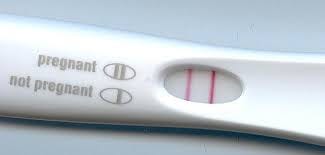With Abortion Rights Under Threat, Congress Readies Legislation To Protect Them
State laws limiting women's reproductive freedom headed to US Supreme Court
As a number of Republican-controlled states have been passing state laws severely curtailing the legal access to abortion rights guaranteed by the 1973 Supreme Court decision Roe v Wade, it's all-but-certain that at least one or more of those laws will head up to the nation's high court.
This time, however, the court is filled with a 6-3 right-wing majority installed by then-president Donald Trump and his Senate Republican allies.
It's within this context that a group of Democratic lawmakers in both the House and Senate have crafted federal legislation which would make abortion rights legal by statute — supplanting its current status as a right by legal decision.
The Women’s Health Protection Act (WHPA) guarantees a pregnant person’s right to access an abortion—and the right of an abortion provider to deliver these abortion services—free from medically unnecessary restrictions that interfere with a patient’s individual choice or the provider-patient relationship.
The bill’s introduction follows the U.S. Supreme Court’s decision to hear arguments in a case that directly threatens 50 years of precedent protecting access to abortion, and comes as states like Texas continue to pass anti-choice laws.

Sens Tammy Baldwin (D-Wisc) and Richard Blumenthal (D-Conn ) joined Reps Judy Chu (D-Calif), Lois Frankel (D-Fla), Ayanna Pressley (D-Mass), and Veronica Escobar (D-Texas) to introduce the WHPA.
The legislation has 48 total co-sponsors in the Senate and 176 total co-sponsors in the House.
Guaranteeing 50 years of reproductive rights
The Women’s Health Protection Act would guarantee a pregnant person’s right to access an abortion—and the right of an abortion provider to deliver these abortion services—free from medically unnecessary restrictions that interfere with a patient’s individual choice or the provider-patient relationship, the bill's sponsors said.
“Right now in states across this country, Roe v. Wade is under attack and millions of women are at risk of losing the freedom to make their own personal health decisions,” said Baldwin. “It is past time to stand up to these extreme threats to women's constitutionally protected reproductive rights, which is why I’m championing the Women’s Health Protection Act. Every woman, regardless of where she lives, deserves the freedom to make her own, personal decisions about her health care, her family and her body.”
From Roe v. Wade in 1973 to Whole Woman’s Health v. Hellerstedt in 2016, the Supreme Court has repeatedly recognized abortion as a constitutional right. However, anti-abortion advocates have worked for years at the state-level to pass laws meant to undermine or eliminate access to abortion care. In the last decade, state lawmakers have pushed through nearly 500 restrictive laws that make abortion difficult and, sometimes, impossible to access. Just this year, four states have passed bans on abortion at six weeks of pregnancy, before many people even know they’re pregnant. Lawmakers in Arkansas and Oklahoma attempted to ban abortion completely. WHPA would stop these attacks and ensure that abortion access first guaranteed under Roe is a reality for everyone, everywhere.
“The fight to protect abortion rights for all Americans is more critical than ever now that the Supreme Court has agreed to hear a challenge to the Mississippi law banning abortion after 15 weeks, in a direct challenge to the constitutional protections established by Roe v. Wade,” said Chu. “This is part of a deliberate strategy by anti-abortion extremists to use state laws and the courts to slowly chip away at abortion access, with nearly 500 restrictive laws introduced in states since just 2011. That is why we need the Women’s Health Protection Act to ensure that no matter where you live, what your background is, or what your zip code, you have the same rights to make decisions about your own body as anyone else.”



